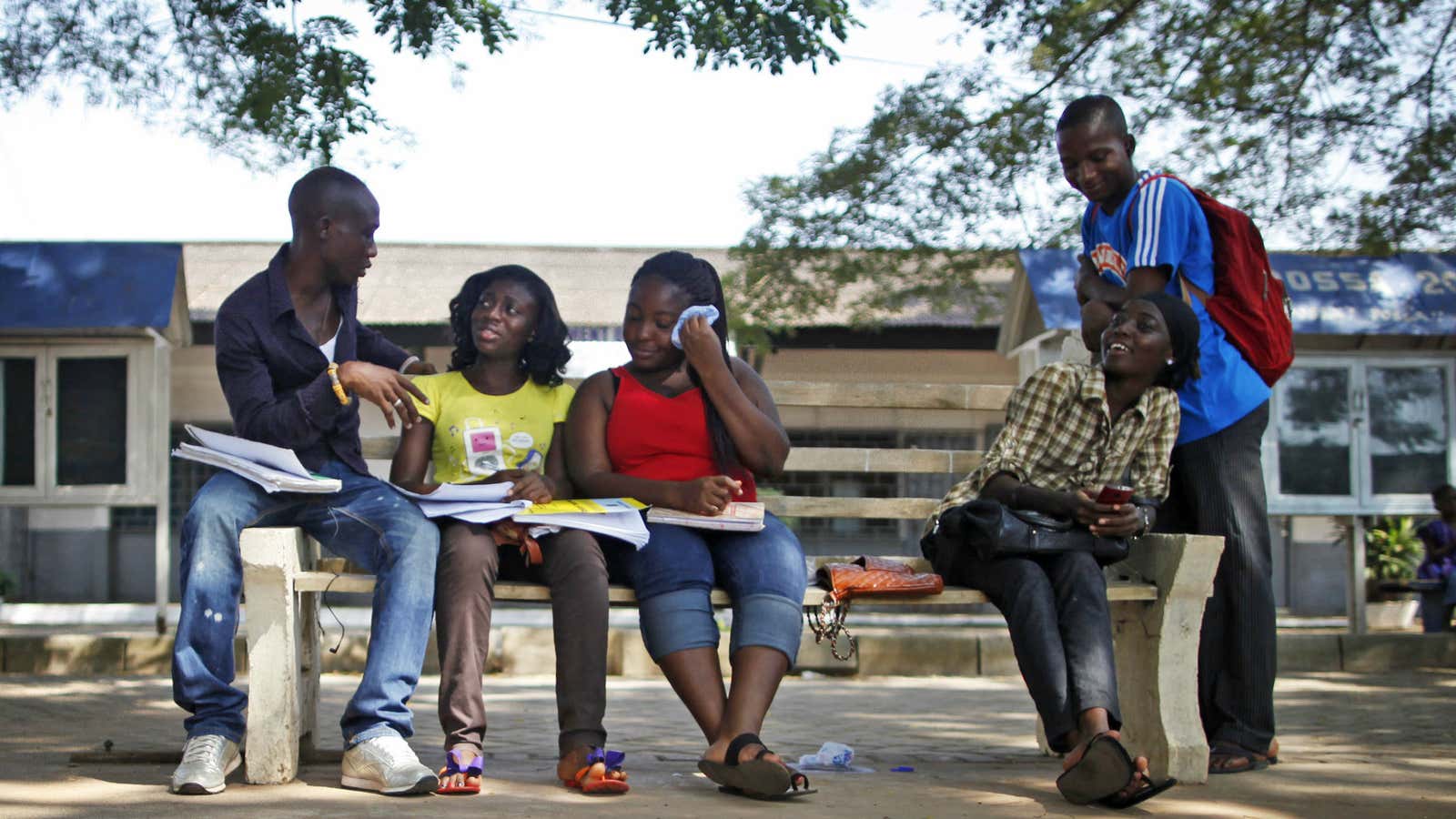Over the past couple of decades Ghana has won a hard-earned reputation as a stable and settled democracy.
Yet, as news broke last week that a young university graduate from Ghana had left home to join Islamic State of Iraq (ISIS), it was hard not to dread the prospect of a mass exodus or worse, deadly jihadist violence on our shores.
Those concerns were heightened when an investigative report by popular local radio station Starr FM reported that ISIS agents in Ghana are enticing unemployed youths with promises of cash and a gateway to heaven.
“They are promised initial spending fee and luxurious life before they travel to Syria and Iraq. Again their immediate families are assured quality life after they have left, so many of the young guys are considering it, especially in the Zongos (a slang term for neighborhoods populated by majority northern Ghanaian Muslims),” it quoted an interviewee as saying.
Twenty-five year old Nazir Alema Nortey, a graduate of one of Ghana’s leading universities sent a WhatsApp message to his family telling them he left the country earlier this month to join the Islamic extremist group, leaving behind a devastated family. The University Of Science and Technology graduate, is described by his father as a gentle, well-mannered man. Nortey was an active student on campus and showed no signs of being radicalized. He had a girlfriend. He was an ordinary man.
Sketchy details of a second recruit, identified only as Rafiq also emerged this week at an official media briefing but there are already unconfirmed reports of a third—a young woman whose name has been given as Shakira Mohammed.
“Anyone is a potential recruit,” National Security Co-ordinator, Mr Yaw Donkor, told reporters at the briefing.
Donkor said would-be members were being headhunted from mainly tertiary institutions in Ghana where students were drafted into WhatsApp and Facebook social media forums in which radical discourse and indoctrination took place.
Among the many questions a shocked nation is asking itself is what might happen if radicalized youth return home. A look at what’s happening across Africa and around the world shows a sharp rise in the number of youth joining ISIS.
Ghana prides itself on its stable democracy and social harmony, but it was surely only a matter of time before the specter of Islamist militancy touched our shores given how close we are to troubled regional neighbours like Nigeria to the east, Mali to the northwest and Niger and Chad to the northeast.
These are all now hotspots for militant Islam and terrorist activity. Boko Haram, which has launched massive attacks in Nigeria since 2009, is the most troubling. The group which initially had links to al-Qaeda, pledged allegiance to ISIS in March.
With little in place in terms of anti-terrorism measures in Ghana, what is there to stop us following the lead of our volatile neighbours?
Boko Haram in Ghana by 2016?
Back in June there were angry demonstrations in Accra when city authorities ordered security forces to raze part of one of the largest slums, largely inhabited by Muslims, leaving thousands homeless. One placard brought home the frustration:
“Before 2016 , you will see Boko Haram in Ghana,” the sign read.
While some are blaming the internet and the accessibility of radical social media sites, there is an increasing possibility Islamic disaffection with Christian fundamentalism might be on the rise.
Christians make up 70% of the population of Ghana and Muslims 18%, according to official census figures from 2000. This has been disputed by Ghanaian Muslim leaders and other official sources who set the number at between 18% to 30%.
Relations between the two religions have been peaceful in Ghana. But it’s often noted development and education have spread much faster in the predominantly Christian south than in the mainly Muslim north. Ghana’s main political parties are not organised primarily on religious or ethnic lines, as happens elsewhere on the continent, and the country has had several Muslim vice presidents. Yet in the wake of these revelations the potential for Islamophobia against its Muslim minority is real.
We need to ask ourselves what the attraction is for an ordinary, middle-class Ghanaian young man, or woman, in joining the most dangerous jihadist group in the world. Words like radicalization seem almost incongruous with moderate Muslim youth. Yet it is true that education and liberalism aren’t foolproof armour against radicalization.
Neither can the economic factor be overlooked, given that Ghana, once Africa’s star economy, has turned to the International Monetary Fund to help it resolve its financial crisis. President John Mahama says growth needs to be at least 8% to provide jobs for its young people, but growth has shrivelled in the past two years and it is expected to stand at 3.9% in 2015—below average for sub-Saharan Africa.
Unemployment data in Ghana is not collected, but Desmond Biney, director of the Unemployed Graduates Association Of Ghana sets the figure for unemployed graduates over the last five years at around 287,000. Current membership of the group which was set up as an advisory and placement service has doubled in the last two years.
And in further evidence of the impact of current economic conditions, Ghanaians have joined the hundreds of thousands of migrants risking their lives on the Mediterranean to seek work in Europe.
It is important not to overstate the problem. So far this is a tiny handful of people in a nation of 26 million. But for the majority of Ghanaians their decision to join ISIS should set alarm bells ringing.
The question that needs answering is: how far will they go?
